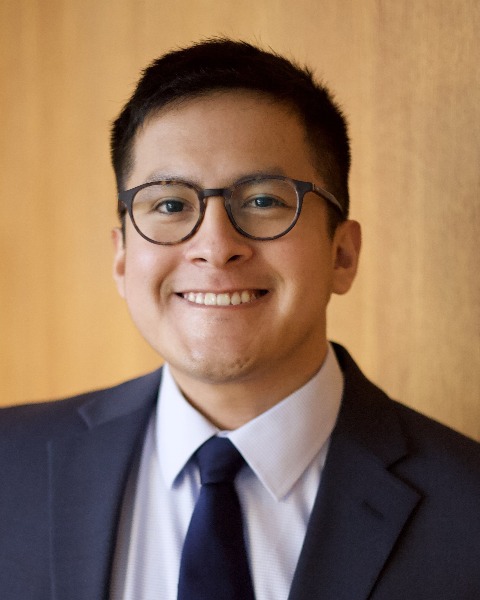Education
Determinants of Global Neurosurgery Interest Among U.S. Medical Students: Insights from a National Study

Paul Serrato, MS
Medical Student
Yale School of Medicine
New Haven, CT, US
Presenting Author(s)
Introduction: Global neurosurgery (GNS) is vital in addressing the significant burden of untreated neurosurgical diseases worldwide. Cultivating early interest in GNS is essential for developing a skilled workforce to tackle these disparities. However, the factors influencing U.S. medical students' interest in GNS and their training institution choices are not well understood.
Methods: We conducted a national survey on GNS interest among U.S. medical students across 30 states from September to November 2024. Univariable and multivariable logistic regression analyses assessed associations between demographic, family, mentor, and academic factors and GNS interest. We also examined how opportunities in global health and global surgery influence students' choices of medical schools and rankings for residency programs.
Results: Among 114 respondents, 63 (55.3%) expressed GNS interest and 51 (44.7%) did not. Interested medical students were more often first-year students (40.3% vs 13.7%, p=0.008), born outside of the USA (27.4% vs 9.8%, p=0.047), and had more often shadowed neurosurgeons in the operating room (51.6% vs 13.7%, p< 0.001). On multivariable analysis, the strongest predictive factor for GNS interest was having a neurosurgery mentor (adjusted OR: 49.06, 95% CI: 7.86-291.70), followed by having prior interactions with neurosurgical faculty in the curriculum (aOR: 3.10, 95% CI: 1.66-10.49) and global health interest group membership (aOR: 2.73, 95% CI: 1.12-8.68). Global health and global surgery opportunities influenced 25% of students' choice of medical school, and 48% indicated these opportunities would impact their residency program rankings. The most highly desired opportunities for residency included clinical rotations in resource-limited settings domestically or internationally (n=50, 92.6%), global health or global surgery research funding (n=49, 90.7%), and interactions with international residents and faculty (n=41, 75.9%).
Conclusion : Mentorship in neurosurgery stands out as a key predictor of GNS interest among U.S. medical students. About half of surveyed students indicated that global health and global surgery opportunities would influence their residency program rankings. These findings highlight the importance of structured mentorship and global health exposure in training to develop a generation of neurosurgeons committed to addressing neurosurgical disparities.
Methods: We conducted a national survey on GNS interest among U.S. medical students across 30 states from September to November 2024. Univariable and multivariable logistic regression analyses assessed associations between demographic, family, mentor, and academic factors and GNS interest. We also examined how opportunities in global health and global surgery influence students' choices of medical schools and rankings for residency programs.
Results: Among 114 respondents, 63 (55.3%) expressed GNS interest and 51 (44.7%) did not. Interested medical students were more often first-year students (40.3% vs 13.7%, p=0.008), born outside of the USA (27.4% vs 9.8%, p=0.047), and had more often shadowed neurosurgeons in the operating room (51.6% vs 13.7%, p< 0.001). On multivariable analysis, the strongest predictive factor for GNS interest was having a neurosurgery mentor (adjusted OR: 49.06, 95% CI: 7.86-291.70), followed by having prior interactions with neurosurgical faculty in the curriculum (aOR: 3.10, 95% CI: 1.66-10.49) and global health interest group membership (aOR: 2.73, 95% CI: 1.12-8.68). Global health and global surgery opportunities influenced 25% of students' choice of medical school, and 48% indicated these opportunities would impact their residency program rankings. The most highly desired opportunities for residency included clinical rotations in resource-limited settings domestically or internationally (n=50, 92.6%), global health or global surgery research funding (n=49, 90.7%), and interactions with international residents and faculty (n=41, 75.9%).
Conclusion : Mentorship in neurosurgery stands out as a key predictor of GNS interest among U.S. medical students. About half of surveyed students indicated that global health and global surgery opportunities would influence their residency program rankings. These findings highlight the importance of structured mentorship and global health exposure in training to develop a generation of neurosurgeons committed to addressing neurosurgical disparities.

.jpg)